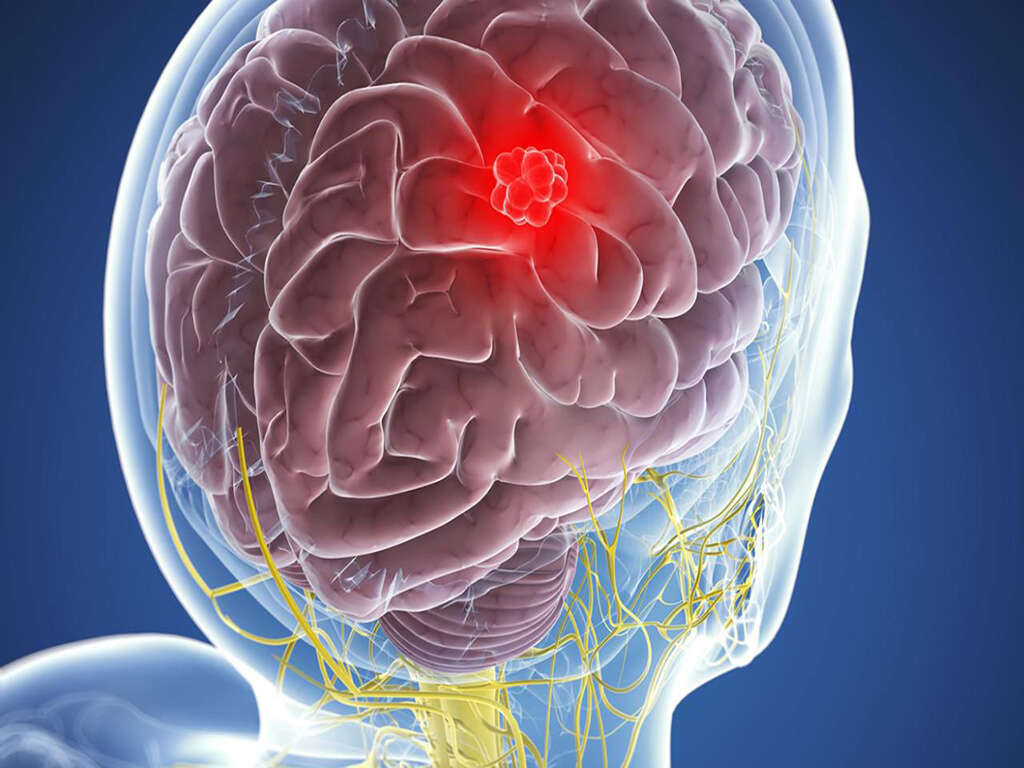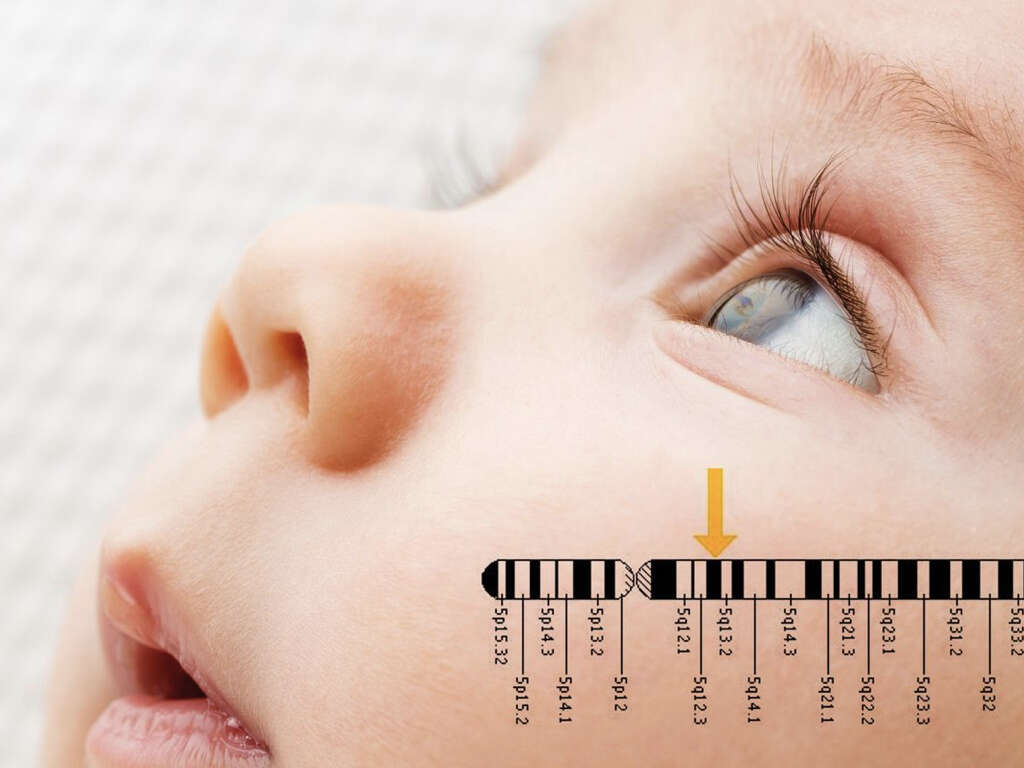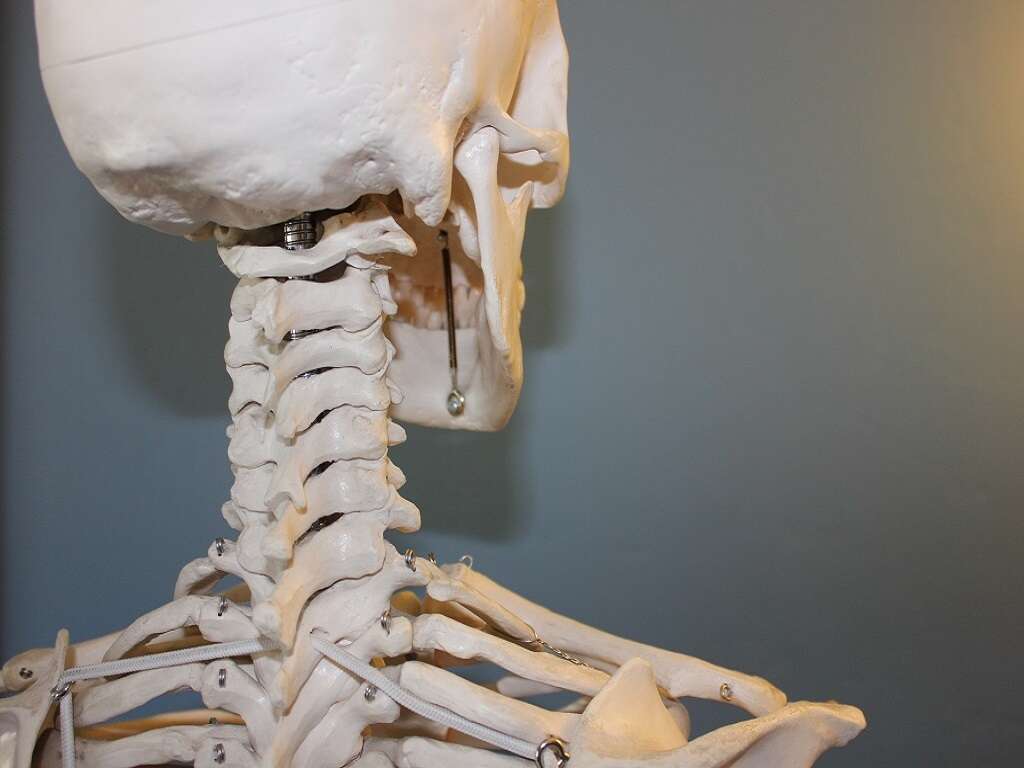10 Meningioma Symptoms
Meningioma is the most common type of brain tumor which develops from the meninges, the membranes that surround the brain and the spinal cord. In about 90% of cases, meningioma is considered a benign tumor, while in 10% of cases they can be atypical or malignant.
Meningioma is usually diagnosed in patients between 40 and 70 years of age. Women are more commonly affected than men. A good thing is that this kind of brain tumor very rarely affects children. Common meningioma risk factors include genetic predisposition, previous head trauma, and exposure to radiation.
Benign meningioma tends to develop slowly over a long period of time, which means that it will take some time for signs and symptoms to become noticeable. However, signs and symptoms in these cases vary greatly from the location of the tumor. 10 most common meningioma symptoms are:

Symptom #1: Headaches
Headaches are a common problem for patients suffering from meningioma. They tend to be quite frequent, occurring for weeks and months before the tumor is diagnosed. Headaches can occur several times a day and usually, the patient will get some relief using over-the-counter painkillers.
Headaches occur especially in cases when a tumor is located on the surface of the brain or when the tumor is located in the intraventricular region. As the tumor continues to grow, it will block the normal flow of the cerebrospinal fluid, causing headaches, a nagging heaviness, etc.

Symptom #2: Pain and Weakness of the Extremities
One characteristic symptom of meningioma is pain and weakness of the arms and legs. This symptom usually occurs in cases when the tumor is located in the parasagittal region of the brain or in the cerebral falx.
In cases when the tumor mass develops in the meninges that cover the spinal cord, a dull ache, a sensation of heaviness is commonly felt in the upper and lower extremities. Often this symptom is underestimated or associated with other conditions, which just delays the diagnosis.

Symptom #3: Hearing Loss
Meningioma can develop in any part of the meninges surrounding the brain or the spinal cord. Based on the place where the tumor is located, signs and symptoms will develop. In cases when the tumor is located in the posterior fossa of the brain, hearing problems occur.
Hearing problems will progress to a permanent hearing loss if not diagnosed and treated. This results from the compression of the cranial nerves from the tumor mass which continues to grow over a long period of time. This is especially true for benign meningioma as they tend to progress slowly over many years.

Symptom #4: Vision Problems
In cases when the tumor is located in the sphenoid wings or in the suprasellar region, vision problems will occur. Usually, there will be a gradual vision loss or a double vision as the optic nerve is affected.
In rare cases, the outer appearance of the eye will be affected, if the tumor mass grows around the eye socket. As the tumor grows around the eye, it will put pressure every day even more, until the eye bulges from the eye socket.

Symptom #5: Dizziness
Dizziness is another symptom that is often associated with meningioma. However, dizziness is a general symptom which accompanies many other health conditions, which just delays the right diagnosis.
In cases of meningioma, dizziness and a lack of balance occur as the tumor mass continues to grow gradually in the intraventricular space. Tumors located in the intraventricular space will affect the normal flow of the cerebrospinal fluid, often restricting it.

Symptom #6: Loss of Olfactory Sense
In cases when the tumor mass puts pressure on the cranial nerves, various signs and symptoms will develop. If the nerves that are responsible for olfactory response are affected, there will be a gradual loss of this sense as the tumor mass continues to grow. This symptom is often underestimated and not noticed until it becomes really weak.
After the tumor is treated surgically and the tumor mass is totally removed, a full resumption of sense of smell is possible.

Symptom #7: Spinal Pain
Spinal pain is another problem that these patients tend to deal with. This is more likely to occur in cases when the tumor develops in the meninges surrounding the spinal cord or in the brain where the nerves run into the spinal cord putting pressure on these nerves. The back pain varies from mild, moderate to severe and tends to relief when over-the-counter painkillers are used.
In cases when a person suffers from frequent back pain but can’t identify the real reason, brain meningioma should be considered. Also, if a person has common back pain because of disc herniation, a back injury, or any other problem related to the muscles or vertebral column, a brain meningioma diagnosis is delayed.

Symptom #8: Altered Mental Function
The normal function of the brain will be altered as the tumor mass continues to grow. However, the severity of the altered mental function will significantly depend on the location of the tumor as well as from its size.
If the tumor is located in the frontal lobe, agility and memory are affected. The normal capacity of a person to think and reason will start to deteriorate as the tumor continues to grow, affecting someone’s life significantly.

Symptom #9: Memory Loss
In cases when the tumor is located in the frontal lobe of the brain, in parasagittal and falx meningiomas, the memory will be affected. Difficulty learning new things, forgetting things that a person might have recently done or a complete loss of memory are possible.
The memory loss depends from one person to the other. While some just become generally forgetful, other may have a real problem with their memory, especially when it comes to recalling memories from the past. However, a complete loss of memory rarely occurs.

Symptom #10: Seizures
Seizures are another meningioma symptom, especially when the tumor mass is located in the cerebrum. These are focal seizures which affect only one hemisphere of the brain. In cases of seizures, patients will experience visual disturbances or hallucinations, a wave-like sensation in the head, a numbness or tingling sensation, etc.
Recurrent seizures in patients with brain tumors significantly affect a person’s life, leading to cognitive problems, making them unable to work, unable to drive or function normally. Seizures in cases of meningioma significantly affect the morbidity.












